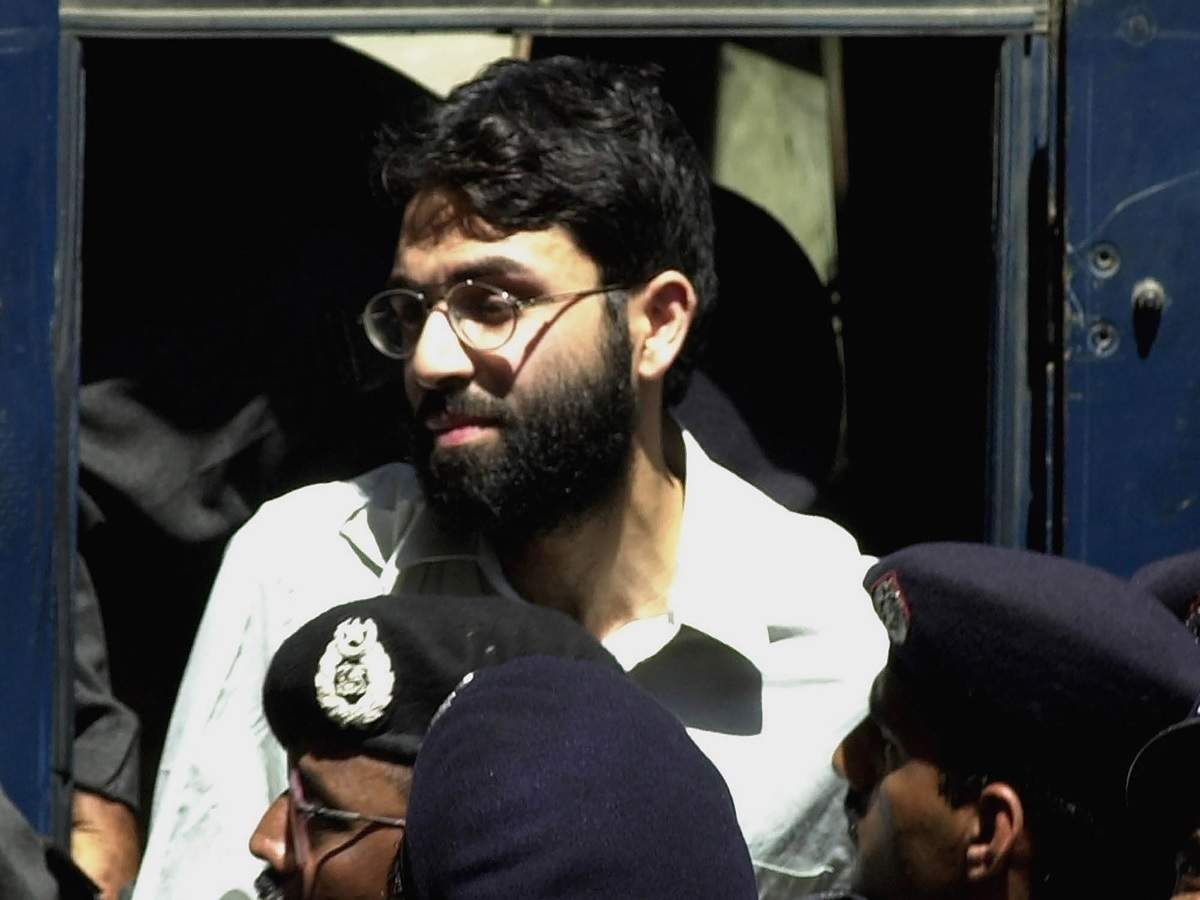ISLAMABAD: The Pakistan Supreme Court on Monday rejected the government’s request to suspend the order to release British-born al-Qaeda terrorist Ahmed Omar Saeed Sheikh and his three aides in the brutal murder of American journalist Daniel Pearl, days after it announced to formally join the review proceedings against the acquittal of the accused amid mounting international pressure.
The court, however, extended the interim detention order of main accused Sheikh and his aides – Fahad Naseem, Sheikh Adil and Salman Saqib- by one day to hear the government’s position on the case.
During the hearing on Monday, the Attorney General of Pakistan requested the Supreme Court to suspend the decision to release the accused so that he could argue the case in detail. The apex court rejected the request, according to a report in The Express Tribune.
The Supreme Court on Thursday ordered the release of the accused by dismissing appeals against their acquittal by the Sindh High Court. The judgement was denounced by Pearl’s family as “a complete travesty of justice”.
The Sindh government on Friday filed a review petition in the apex court against the acquittal of Sheikh and his three accomplices.
Amid mounting pressure from the US and the UN, a spokesman of the Attorney General of Pakistan (AGP) on Saturday announced that the federal government will file an appropriate application before the apex court to be allowed to join as a party in the proceedings and further seek review and recall of the court’s January 28 judgement.
Pearl, the 38-year-old South Asia bureau chief for The Wall Street Journal, was abducted and beheaded while he was in Pakistan investigating a story in 2002 on the links between the country’s powerful spy agency ISI and al-Qaeda.
“Let’s hear the government’s position till tomorrow,” the court said, according to a report in The Express Tribune.
“The government should tell the court how a citizen can be detained,” it further said.
A three-judge bench of the apex court led by Justice Umar Ata Bandial heard the government’s petition wherein a notice to the Attorney General of Pakistan was also issued and records of the case were sought from the Sindh High Court (SHC), the report said.
During the hearing, the AGP said that the government has not been made a party in the SHC and the accused were acquitted without hearing pleas from the government, a necessary step in such cases, the report said.
A Pakistani citizen is in custody, the high court will not rule without looking at the order sheet, Justice Bandial said.
The court also refused to adjourn the case for a week on the request of a co-counsel.
Meanwhile, Pakistan Foreign Minister Shah Mahmood Qureshi on Sunday said that Pakistan will not hand over the main accused in the case to the US, The Express Tribune report said on Sunday.
His comments came after a phone call with US Secretary of State Antony Blinken who offered to prosecute Sheikh in America.
Blinken also expressed “deep concern” over the apex court’s judgement.
The US also has been mounting pressure on Pakistan, demanding justice for Pearl. Last month, the US said it is ready to take custody of Sheikh, asserting that Washington will not allow him to evade justice.
Acting Attorney General Monty Wilkinson said the US was deeply concerned by the ruling affirming the acquittal of individuals convicted by a Pakistani trial court.
“The release of those involved would be an affront to Daniel Pearl’s family, to other terrorism victims around the world, and to the cause of justice,” Wilkinson said.
Expressing concern over the acquittal of the accused in the case, a senior UN official representing Secretary-General Antonio Guterres said that it is important that there is accountability for such crimes.
“What is important is that there be accountability for those crimes committed,” Stephane Dujarric said on Friday.
In April 2020, a two-judge Sindh High Court bench commuted the death sentence of 46-year-old Sheikh to seven years imprisonment. The court also acquitted his three aides who were serving life terms in the case — almost two decades after they were found guilty and jailed.
The Sindh government and the family of Pearl filed petitions in the apex court, challenging the high court verdict.
The Sindh government invoked the Maintenance of Public Order (MPO) Ordinance 1960 to keep the four men under detention.
Their continuous detention was challenged in the Sindh High Court (SHC), which on December 24 directed security agencies not to keep Sheikh and other accused under “any sort of detention” and declared all notifications of the Sindh government related to their detention “null and void”.
Sheikh in a handwritten letter to the SHC in 2019 admitted his limited involvement in the killing of Pearl. The letter was presented to the Supreme Court nearly two weeks ago and Sheikh’s lawyer on Wednesday confirmed the letter. The accused, however, didn’t explain the nature of his role which he said was “just minor”.
Pearl’s murder took place three years after Sheikh, along with Jaish-e-Mohammad chief Masood Azhar and Mushtaq Ahmed Zargar, was released by India in 1999 and given safe passage to Afghanistan in exchange for the nearly 150 passengers of hijacked Indian Airlines Flight 814.
He was serving a prison term in India for kidnappings of Western tourists in the country. (AGENCIES)


